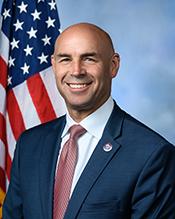0
B–VERIFY Act of 2023
12/12/2023, 7:00 PM
Summary of Bill HR 4546
Under the B–VERIFY Act, all employers would be required to use the E-Verify system to confirm the eligibility of their employees to work in the United States. This system would allow employers to quickly and easily verify the immigration status of their employees, helping to prevent the hiring of unauthorized workers.
The bill also includes provisions to strengthen penalties for employers who knowingly hire unauthorized workers. Employers found to be in violation of the B–VERIFY Act could face fines and other penalties, up to and including the suspension or revocation of their business licenses. Supporters of the B–VERIFY Act argue that it is necessary to protect American jobs and ensure that employers are following the law when hiring new employees. They believe that a mandatory employment verification system will help to level the playing field for all workers and prevent the exploitation of unauthorized workers. Opponents of the bill, however, argue that it could lead to discrimination against certain groups of workers and create additional burdens for employers. They also raise concerns about the potential for errors in the E-Verify system, which could result in eligible workers being wrongly denied employment. Overall, the B–VERIFY Act of 2023 is a controversial piece of legislation that seeks to address the issue of unauthorized workers in the United States. It remains to be seen whether or not the bill will ultimately be passed into law.
Congressional Summary of HR 4546
Biometric Verification for Entry and Reconfirming Identity with Forensics Act of 2023 or the B-VERIFY Act of 2023
This bill addresses various immigration-related issues, including by imposing penalties on parents of unaccompanied alien children who arrive in the United States.
Under this bill, any applicant for an immigration benefit, including a U.S. national applying for a non-U.S. national (alien under federal law) beneficiary, must provide biometric information, including DNA.
Furthermore, before the Department of Health and Human Services (HHS) may release an unaccompanied alien child to a sponsor, the potential sponsor must undergo a background check that includes certain searches, including a Federal Bureau of Investigation National Criminal History Check. (HHS currently conducts background checks of potential sponsors, but is not required to conduct all the checks required by this bill.)
HHS must report a potential sponsor to U.S. Immigration and Customs Enforcement (ICE) if the potential sponsor (1) fails to prove a claimed familial relationship with the child, or (2) provides a false identity document.
HHS may not use government funds to provide legal counsel to detained unaccompanied alien children.
The bill also imposes penalties on the non-U.S. national parents of an unaccompanied alien child who arrives in the United States, including by deeming the parent inadmissible into the United States if the parent does not have lawful permanent resident status.
Federal employees must promptly notify ICE if they receive an identification document indicating that an individual is unlawfully present. ICE must promptly place the individual in removal proceedings.




